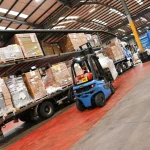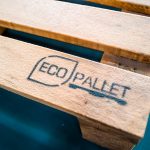
Why Wooden Pallets Outperform Plastic for Avocado Exports in Kenya: A Cost-Benefit Analysis
Introduction
When it comes to exporting avocados from Kenya, every detail matters. From harvesting and packaging to logistics and transportation, each step impacts the freshness, quality, and cost-effectiveness of the process. But one crucial factor often gets overlooked: the choice of pallets.
While plastic pallets may seem like a modern alternative, the reality is that wooden pallets outperform them in multiple ways—especially for Kenyan avocado exporters. If you’re looking to cut costs, ensure compliance, and maintain product integrity, wooden pallets are the clear winner.
In this article, I’ll break down the cost-benefit analysis of using wooden pallets over plastic and why making the right choice can boost efficiency and profitability in avocado exports.
Understanding the Key Export Challenges
1. Cost Sensitivity in the Export Market
Avocado exports are already subject to various costs, including freight charges, packaging, and handling fees. These expenses can quickly add up, affecting your bottom line. Therefore, selecting an affordable, long-lasting, and efficient pallet system is essential to maximizing profitability.
2. Compliance with International Standards
Kenyan avocados are exported to global markets, including the European Union, the Middle East, and Asia. Each of these regions has strict sanitary and phytosanitary (SPS) regulations regarding packaging materials, including pallets. The wrong choice can result in costly delays, rejected shipments, or non-compliance penalties.
3. Product Quality and Safety
Avocados are delicate, and improper handling can lead to bruising, spoilage, or weight imbalances that compromise entire shipments. The material of your pallets directly impacts airflow, stacking efficiency, and protection against mechanical damage during transportation.
The Cost-Effectiveness of Wooden Pallets
A common misconception is that plastic pallets are more cost-effective due to their durability. However, a deeper cost analysis proves otherwise:
- Lower Upfront Cost: Wooden pallets are significantly cheaper to produce and purchase compared to plastic pallets.
- Repairability: Unlike plastic pallets, which need complete replacement when damaged, wooden pallets can be repaired and reused, reducing long-term expenses.
- Availability: Wooden pallets are locally manufactured in Kenya, cutting down on costly imports and ensuring a steady supply.
Moreover, plastic pallets often require customs clearance, import duties, and regulatory compliance, which further increases their total cost.
Why Wooden Pallets Are the Better Choice for Avocado Exports
1. Better Load Stability and Ventilation
Wooden pallets offer superior airflow, ensuring that avocados stay fresh for longer periods. Proper ventilation helps prevent premature ripening and spoilage, which is a critical factor in maintaining product quality during shipment.
2. Customizability for Export Needs
Kenyan exporters often face challenges when using standardized pallets that don’t align with the unique needs of their shipments. Wooden pallets can be tailor-made to fit specific container dimensions, load weights, and stacking requirements, whereas plastic pallets are mass-produced with limited flexibility.
3. Environmentally Friendly and Sustainable
Sustainability is a growing concern in agriculture and exports. Wooden pallets, made from renewable timber sources, are biodegradable, recyclable, and can be repurposed. In contrast, plastic pallets are made from fossil fuel-based materials and can take centuries to decompose.
4. ISPM 15 Compliance for Global Trade
Many international markets mandate ISPM 15 certification for pallets to prevent the spread of pests. Wooden pallets that meet this standard are accepted worldwide. Conversely, plastic pallets often require additional fumigation treatments or approvals, increasing export complexity.
Durability and Long-Term Use: Plastic vs. Wooden Pallets
Plastic pallets are often marketed as durable, but when factoring in their high replacement costs, wooden pallets provide better long-term value.
- Plastic Pallets: Expensive upfront, costly to replace, and limited repairability.
- Wooden Pallets: Cheaper, easy to repair, and sustainable for long-term use.
Moreover, wooden pallets are better suited for varying climate conditions. Plastic pallets can warp under extreme heat or crack in cold conditions, making them less reliable for exports that involve different temperature zones.
Practical Tips for Maintaining Wooden Pallets
To extend the life of your wooden pallets and ensure compliance with export standards:
- Store in a dry place to prevent moisture damage and mold growth.
- Inspect regularly for cracks, broken boards, or loose nails and perform minor repairs promptly.
- Use proper stacking techniques to distribute weight evenly and avoid unnecessary strain on the pallets.
- Recycle old pallets by repurposing them for other uses, such as furniture, packaging materials, or biofuel.
Case Studies: Kenyan Exporters Thriving with Wooden Pallets
Success Story 1: Large-Scale Avocado Exporter
One of Kenya’s top avocado exporters switched to wooden pallets and reduced logistics costs by 30% while improving shipment efficiency. By sourcing pallets locally, they also avoided costly delays caused by plastic pallet shortages.
Success Story 2: Mid-Sized Grower Expanding Globally
A mid-sized avocado grower in Kenya adopted custom-sized wooden pallets to fit more units per shipment, ensuring compliance with EU regulations while minimizing fruit damage. This led to fewer rejected shipments and improved profitability.
Conclusion: The Smarter Choice for Kenyan Avocado Exporters
For Kenyan exporters, choosing wooden pallets over plastic is a cost-effective, sustainable, and compliance-friendly decision that supports long-term business success. With benefits such as lower costs, superior ventilation, repairability, and ISPM 15 compliance, wooden pallets are the best investment for avocado exports.
Making the right pallet choice today ensures greater efficiency, sustainability, and profitability in your export operations. Don’t overlook this crucial decision—switch to wooden pallets and future-proof your avocado business!
FAQs
- Are wooden pallets strong enough for avocado exports?
- Absolutely! They are designed to handle heavy loads and offer better ventilation than plastic alternatives.
- Do wooden pallets comply with international regulations?
- Yes, as long as they are ISPM 15 certified, they meet global export requirements.
- Why are plastic pallets not ideal for avocado exports?
- They are costly, less customizable, and may require additional compliance measures.
- How can I extend the life of my wooden pallets?
- Regular maintenance, proper storage, and timely repairs can significantly extend their lifespan.
- Where can I source high-quality wooden pallets in Kenya?
- From reputable local manufacturers who ensure quality and compliance for export needs.





Add a comment